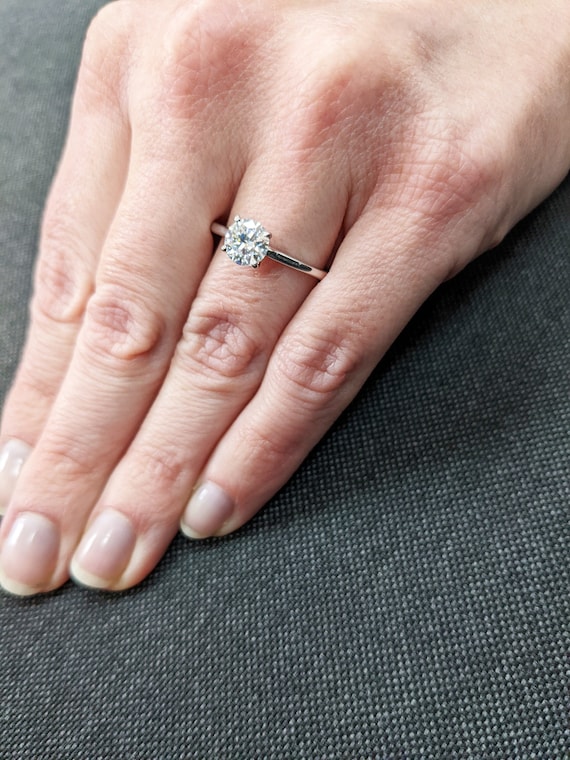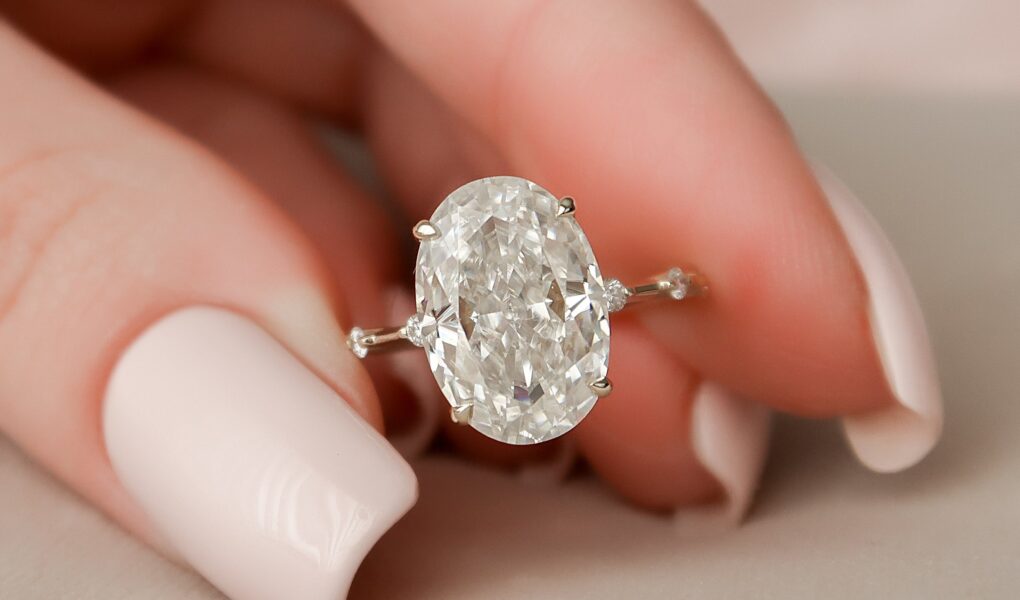Choosing an engagement ring is a big decision, and one of the most important factors to consider is what type of gemstone to select. While diamonds are traditionally thought of as the best option for this purpose, moissanite can be an attractive alternative.
Moissanite has some distinct advantages over diamonds when it comes to cost, durability, and ethical sourcing; however, some drawbacks should be taken into consideration before making a decision. This article will explore whether or not moissanite engagement rings are a good alternative to diamond engagement rings.
1. What is Moissanite?

Moissanite is a brilliant, alternative gemstone to diamonds for engagement rings. It has a hardness of 9.25 on the Mohs scale and is highly durable, scratch-resistant, and long-lasting like diamonds. Moissanite offers more brilliance than diamonds, with its unique ability to absorb light from all directions and reflect it in an array of rainbow colors.
In addition to being beautiful, moissanite is also budget-friendly as it costs about 10% of what you would pay for a diamond with a similar carat weight. With its exceptional properties and affordability, moissanite provides excellent value for money when shopping for an engagement ring or other jewelry item without sacrificing quality or beauty!
2. Benefits of Choosing Moissanite for Engagement Rings
Moissanite is quickly becoming a popular alternative to diamonds for engagement rings due to its many benefits. Moissanite is incredibly durable, with a hardness rating of 9.25 on the Mohs scale making it highly resistant to scratching and breaking. It also has a higher refractive index than a diamond which makes it more sparkly and eye-catching.
Another benefit of choosing moissanite over diamond is that it’s significantly cheaper, meaning you can get more bang for your buck without compromising on quality or beauty.
Finally, moissanite is an ethical choice as it doesn’t originate in conflict regions like some diamonds do, so you can buy with peace of mind knowing your purchase isn’t contributing to any unethical practices or causes around the world.
3. Cost Comparison: Diamond vs Moissanite

When it comes to choosing an engagement ring, the cost of a diamond can be quite prohibitive. Moissanite is becoming an increasingly popular alternative for those looking for a beautiful and affordable option. While moissanite does not sparkle quite as brightly as diamonds, its light-reflecting properties are still impressive.
Cost-wise, moissanite is often one-tenth of the price of diamonds making them more accessible to many budget-conscious couples. Additionally, they have very similar physical characteristics that make them appear almost identical to the untrained eye; this makes them ideal for those who want something with all the glamour without the hefty price tag.
4. Durability and Quality Considerations for Moissanite Engagement Rings
Yes, Moissanite is a great alternative to diamonds for engagement rings. Durability and quality are always important considerations when choosing an engagement ring and Moissanite satisfies these criteria perfectly.
With a Mohs hardness rating of 9.25-9.5, it is the second hardest gemstone available on the market after diamond and will not scratch or chip easily, making it incredibly durable over time.
Quality-wise, Moissanite possesses superior optical characteristics compared to other simulants such as cubic zirconia or synthetic diamonds; its fire (dispersion) rating of 0.104 is more than double that of a diamond’s 0.044 which means that it has more brilliance and sparkle than a diamond does!

Conclusion
The article concludes that moissanite can be a great alternative to diamonds for engagement rings. It has many of the same qualities as diamonds but at a much lower cost.
While it may not have quite the sparkle and brilliance of natural diamonds, its affordability makes it an attractive option for those seeking something special without breaking their budget. Ultimately, whether or not moissanite is right for you depends on your individual preferences and needs.




